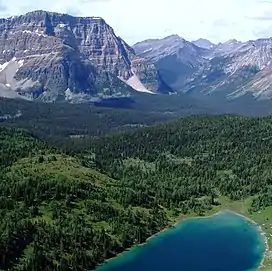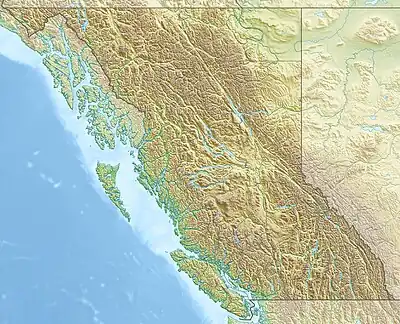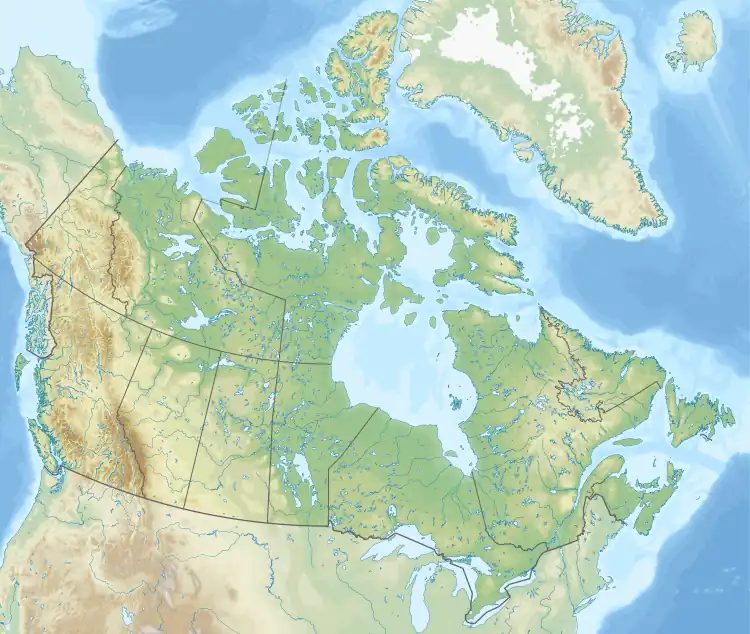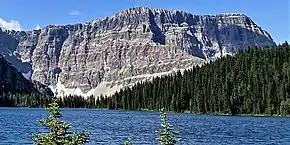Mount Watson
Mount Watson is a 2,955-metre (9,695-foot) mountain summit located in Mount Assiniboine Provincial Park, in the Canadian Rockies of British Columbia, Canada. The nearest higher peak is The Marshall, 2.0 km (1.2 mi) to the southeast.[1]
| Mount Watson | |
|---|---|
 Mount Watson upper left | |
| Highest point | |
| Elevation | 2,955 m (9,695 ft)[1] |
| Prominence | 165 m (541 ft)[1] |
| Parent peak | The Marshall (3180 m)[1] |
| Listing | Mountains of British Columbia |
| Coordinates | 50°53′23″N 115°42′46″W[2] |
| Geography | |
 Mount Watson Location of Mount Watson in British Columbia  Mount Watson Mount Watson (Canada) | |
| Country | Canada |
| Province | British Columbia |
| District | Kootenay Land District |
| Protected area | Mount Assiniboine Provincial Park |
| Parent range | Park Ranges Canadian Rockies |
| Topo map | NTS 82J13 Mount Assiniboine[2] |
| Geology | |
| Age of rock | Cambrian |
| Type of rock | sedimentary rock |
| Climbing | |
| Easiest route | Scramble[1] |
History
The mountain was named in 1924 after Sir David Watson (1871-1922), commander of the 4th Canadian Division during World War II.[1] The mountain's toponym was officially adopted on March 31, 1924, by the Geographical Names Board of Canada.[2]
Geology
Mount Watson is composed of sedimentary rock laid down during the Cambrian period. Formed in shallow seas, this sedimentary rock was pushed east and over the top of younger rock during the Laramide orogeny.[3]

Climate
Based on the Köppen climate classification, Mount Watson is located in a subarctic climate zone with cold, snowy winters, and mild summers.[4] Winter temperatures can drop below −20 °C with wind chill factors below −30 °C. Precipitation runoff from Mount Watson drains into tributaries of the Mitchell River.
References
- "Mount Watson". Bivouac.com. Retrieved 2019-02-09.
- "Mount Watson". Geographical Names Data Base. Natural Resources Canada. Retrieved 2019-02-09.
- Gadd, Ben (2008), Geology of the Rocky Mountains and Columbias
- Peel, M. C.; Finlayson, B. L.; McMahon, T. A. (2007). "Updated world map of the Köppen−Geiger climate classification". Hydrol. Earth Syst. Sci. 11: 1633–1644. ISSN 1027-5606.